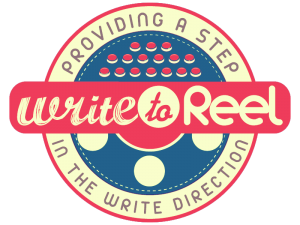 An excerpt from our article Tips to Novelize Your Scripts which will be available 09/21/15:
An excerpt from our article Tips to Novelize Your Scripts which will be available 09/21/15:
What are the benefits of converting your screenplay to a novel?
The first benefit is that it will get read. Generally people like to read. They will read it if it’s put in front of them. If you want your screenplay to be read, giving it to people who like to watch movies, will not usually work. That’s why they watch movies, they prefer not to read. Even getting movie producers to read it is a challenge and their job is to read screenplays. But if you give a screenplay to people that like to read novels, they won’t get it. Screenplays are difficult to read when compared to novels.
So why not give them a novel? This will also help create a following. If people like it, they will pass it on to others and eventually it could generate an audience. Production companies love built in audiences.
The second benefit is the potential income. Putting your work in a trunk is not doing anyone any good. It will sit there and never see the light of day and will never make any money. Let your work, work for you. If it only generates enough money to buy a beer or two, it’s still worth it in the end, because your story being read and appreciated is a writer’s primary goal, regardless of how large, or small, an audience. $20 or $200 or $2000 of passive income a month is still money you wouldn’t have otherwise.
Don’t get me wrong, converting your screenplay to a novel is not as simple as just reformatting the document. Although, there are companies that do provide that as an option. It is worth pointing out for those familiar with Ed Gray’s company, that Antony and Joe’s process was quite different to the Movie Length Tales produced by Aisle Seat Books. That is a company that has writers convert their scripts quite literally into prose, retaining screenplay language, while reformatting it and changing a few words here and there. The company’s objective is to give readers the experience of watching a movie in real time as they read, but Antony and Joe wanted Return Fire to be a true novel, which meant getting inside the characters’ heads, and injecting more into the meat of the story, thus expanding the word count from around 20,000 to just over 60,000.
To do this, you need to make pretty significant changes. You need to make your screenplay read like a novel. Antony and Joe did just this with their screenplay.
To give it the feel of a novel, and to fully immerse the reader, the first step was to break up the screenplay into sequences that would later become chapters.
Want more current articles about the screenwriting industry? Follow this link to our Industry Trends forum.
And be sure to check out our Notes Service, where I give my detailed thoughts and suggestions on your script.
With Antony Davies living in the UK, and Joe Dinicola in the United States, they have just released their action adventure novel Project Return Fire, available for a launch price of 0.99 (ebook) until October 2015, with the paperback also available from Amazon. The novel is based on their screenplay Return Fire.






Novelizing Your Script: An excerpt from our article Tips to Novelize Your Scripts which will be av… http://t.co/hKRfQ7YaPf WriteToReel
http://t.co/waRKqV5ymo Hank: Novelizing Your Script #screenwriting
Project Return Fire is featured in this article. http://t.co/nBoLnt1yJU #writing #novel #book #timetravel https://t.co/vHaOK3NgNB
RT @JoeDinicola: Project Return Fire is featured in this article. http://t.co/nBoLnt1yJU #writing #novel #book #timetravel https://t.co/vHa…
Project Return Fire is featured in this article about converting a screenplay to a novel. http://t.co/xrpC6Bw35N